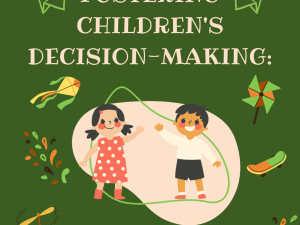January 27, 2017
Think about a time when someone really ‘got’ how you were feeling.
It may have been a time when you were feeling terrible. Maybe you were angry, hurt, or disappointed. In that moment, someone took the time to notice how you were feeling, listen, and understand. What was that like for you?
Therapists talk about the importance of attunement in close relationships. Attune is a variation on tune, as in adjusting a radio to pick up a signal. In relationships, it means to offer one’s full attention with the single objective of understanding  another person. In order to ‘pick up their signal,’ we have to temporarily set aside our own desire to ‘transmit.’ Psychologist Dr. Daniel Goleman describes attuning as “seeking to understand the other person rather than just making our own point.”
another person. In order to ‘pick up their signal,’ we have to temporarily set aside our own desire to ‘transmit.’ Psychologist Dr. Daniel Goleman describes attuning as “seeking to understand the other person rather than just making our own point.”
When someone makes the effort to attune to us, they are showing us that we are important to them. When they don’t, it makes us wonder if they will be there when we need a little attention — maybe they will be more wrapped up in something that is important to them.
Genuine trust doesn’t just happen if we’re honest with each other; we build it continuously, through the way we interact, as we show each other we are dependable companions.
“Trust is built in very small moments,” says relationship researcher Dr. John Gottman. “In any interaction, there is a possibility of connecting with your partner or turning away from your partner.” His research shows that attuning is among the most important activities for building trust in relationships.
Unfortunately, attuning doesn’t come naturally to a lot of us. It is a skill with which some people seem uniquely gifted. That’s not my gift, you might be thinking. I am going to suggest that anyone can learn how to attune. The first step is to identify what distractions you allow to get in the way. They may include:
- -Interrupting (phones, TV, activity)
- -Minimizing (saying you’ll be okay)
- -Giving advice
- -Criticizing
- -Changing the subject (that reminds me of the time…)
- -Shifting the focus to yourself
- -Joking to lighten the mood
I am suggesting that many of us unconsciously engage in distracting
behaviors to cope with our own discomfort with emotions. Many of us never developed a very high tolerance for emotions. What about you — do you feel a little ‘funny’ talking about them?
Attuning requires us to push past that funny feeling for a moment to feel someone else’s emotion instead of immediately trying to extinguish their pain. In those small moments we have shown someone that we value how they are feeling more than how we are feeling, which sends them a very important message: they can depend on us.
I am a fairly optimistic person. I have had to face up to the fact that I get uncomfortable when people are negative and that I have a habit of trying to cheer them up. All I’m trying to do is extinguish their negativity with a little sunshine! I’ve done that to my wife many times. As a result, there must have been many times when I missed the opportunity to understand how she was feeling. The good news is, I discovered that attuning is not that hard to do. It doesn’t require me to be very clever or use many words.
On a recent morning, I gave my wife a ride to work. I heard her sigh. I remarked, “You sighed.” I paused. “What’s on your mind?” Her eyes teared up. She told me about a meeting at work scheduled for that morning that she’d been worrying about. We talked about this situation for a moment and I concluded, “That’s been really hard for you.”
With a few words, I got how she was feeling and I felt it, too. These moments when we feel someone else’s feeling represent emotional intimacy. They are when we get the ‘funny’ feeling. I have come to enjoy this sensation. It is not unlike the  amazingly pleasant sensation of having someone take time to listen to me and understand.
amazingly pleasant sensation of having someone take time to listen to me and understand.
Let’s finish by looking at the ingredients of attunement. Recall what people did when they got how you were feeling. How did they do it? Maybe they…
- -Stopped what they were doing
- -Paid attention
- -Gave eye contact
- -Asked you what was going on
- -Kept the conversation going long enough to understand you
When we push past our discomfort in order to understand someone, not only do we build trust in a relationship. We also get to experience a deeply pleasurable moment of human connection.
-Alan Rutherford, MA, LPC Intern at The Northwest Catholic Counseling Center





